Practical support, tools and strategies
Defining a smoother path for everyone
Creating a peaceful, dignified divorce
What is Collaborative Family Law?
Why it Might Just be The Perfect Fit for Your Changing Family:
- Home
- Divorce Without Court
- Collaborative Family Law
Collaborative family law is a powerful answer for parties who want to separate but avoid ending up in high-conflict, dramatic, and costly litigation. Just because you have decided to get a divorce does not mean that you have to hate each other forever.
What kind of training do collaborative divorce laywers have?
When you get a collaborative law divorce, you work together with your spouse and each of your lawyers in a cooperative, non-adversarial process. You can resolve everything in your family law matter using collaborative family law:
- Child support
- Custody
- Parenting Plan
- Dividing assets
- Spousal support
Jump to read "The 11 Potential Benefits of Collaborative Family Law"
Jump to read "The 7 Potential Downsides of Collaborative Family Law"
Collaborative Family Law - 11 Potential Benefits:
Collaborative Family Law Benefit #1 - Your business stays your business:
People often don’t realize that their matter is public when they go to court. Anyone from the public can sit in on your proceedings. You have no choice about that.
So, if you don’t want the private and intimate details of your family life before the eyes of others, you might want to consider a collaborative divorce.
Collaborative Family Law Benefit #2 - You get on with your life sooner:
Court proceedings take a long time. Way longer than you might expect. Even if you do manage to schedule a date, your case might get “bumped” because of other matters.
The courts book more trials and hearings than there are available judges and courtrooms.
They do that because matters often “settle on the courthouse steps." The court system is set up for the convenience of judges and the court calendar, not for people who are going through a separation.
Collaborative Family Law Benefit #3 - Why Not Keep Your Hard-Earned Resources for You and Your Family :
Although collaborative family law is one specific type of dispute resolution, there are other, more general types of collaborative dispute resolution, such as mediation, four-way meetings, and mediation/arbitration.
The point is this: When you use collaborative dispute resolution, these methods tend to be much more cost-effective than the traditional adversarial methods like the court. Collaborative family law can be way less than court.
Collaborative Family Law Benefit #4 - Did we mention the stress?
Getting divorced is hard enough, why add a bunch of additional turmoil because of the process you are using?
Collaborative family law tends to be much less stressful than court proceedings.
Because collaborative family law is based upon the whole idea of people working together to see their matter resolved, it is, by definition, less combative than the more traditional adversarial route of family law.
Collaborative Family Law Benefit #5 - Why hand important decisions about yours (and your children’s) future to a complete stranger?
When you utilize collaborative family law, you can continue making decisions about what is best for your changing family. You work with your ex and the lawyers to come up with scenarios that work for everyone.
Don’t you think that is way better than handing over important decisions about your family to a stranger?
As well you get to control the process and timing in a flexible way. The court is not flexible.
Collaborative Family Law Benefit #6 - Good luck on ever having a reasonable relationship with your ex if you have gone to court against each other.
Collaborative dispute resolution is great practice. Chances are, you and your ex are going to have to communicate with each other at least to a certain extent in future. This is particularly the case when you have kids.
The collaborative family law process can help you and your ex improve communication.
Because you are working together for the benefit of your whole family, this way of communication and moving forward has a greater likelihood of continuing after your matter is resolved.
Collaborative Family Law Benefit #7 - It is future-focused:
“Focus on the Future, Not the Fight”
-- Rebecca Alleyne, mediator and all around forward-thinking person.
You are engaging in collaborative family law because you are getting separated and divorced.
If your family were highly functional, you would not be here. So, we know that already.
However, in family law matters it is very easy to focus on what happened in the past rather than creating a better future. In collaborative family law you have a way better opportunity to focus on the future. To get on with your life and move forward rather than fighting about the past. Fighting about the past does nothing to move you forward.
Collaborative Family Law Benefit #8 - It uses a team approach:
There are many collaborative family law professionals, not just lawyers. For example, if someone has a relatively complex financial situation, the parties might want to bring in a financial advisor for assistance.
One thing we have found very useful is to utilize parenting experts. There is one in particular in our city that I find very helpful. Rather than lawyers fighting back and forth about which client is to have more parenting time, the parenting expert can focus on what serves children's best interests. The parenting expert can also coach parents to better understand how to meet their children’s needs.
We recall one case where we worked with a parenting expert:
In that case, the father, I will call Joe, had a baby with his girlfriend. I will call her Janice. Joe and Janice loved their child very much, but they separated when their baby was less than a year old. Janice, who was a first-time mother, was worried that Joe was not capable of looking after the baby. Janice only wanted Joe to have very limited parenting time and no overnights. Joe felt that despite their separation, the baby deserved an active and engaged father, as well as her mother. Joe and Janice could not agree as to the parenting plan. They were heading to stressful and expensive litigation.
Because Janice and Joe engaged in a collaborative dispute resolution process, we recommended they engage the services of a parenting expert.
After working with the parenting expert, they agreed upon a parenting arrangement.
They are now co-parents and their child has a meaningful relationship with both of her parents.
Collaborative Family Law Benefit #9 - Kid-Focussed:
If you have kids, collaborative family law allows you to move away from the tug-of-war scenario between two parents.
When parents are in conflict, kids feel it! It impacts their well-being.
This video says it best. Collaborative family law allows your kids to get on with the job of being kids.
Collaborative Family Law Benefit #10 - It's voluntary:
Parties tend to do better when not forced into it. If you are taking it to court, your matter will proceed whether or not you participate.
When using collaborative dispute resolution methods, people are more likely to participate, and they are more likely to participate in a way that increases the likelihood for a better future for themselves and their children.
Collaborative Family Law Benefit #11 - The Lawyers tend to be, well, better lawyers!
To qualify as a collaborative divorce lawyer, lawyers must take significant and additional training that goes way beyond law school. That training is in all kinds of collaborative dispute resolution, including interest-based mediation and negotiation.
Once lawyers go through that additional training, they tend to be better lawyers, better prepared, and able to get their clients better results with less money spent on legal fees.
Collaborative law is a very specific process. It is a powerful one that can get people to powerful resolutions; however, there are some potential downsides:
The 7 Potential Downsides of Collaborative Family Law:
Collaborative Family Law Potential Negative #1 -
If someone is dishonest, they can take advantage:
Collaborative family law has, at its core, the requirement that the parties (and their lawyers) are open and honest. Because the process is voluntary, it is assumed that people know that their ex-spouse will be honest while within the process.
The problem is that an honest and unsuspecting party can be taken advantage of if someone is dishonest.
For example, I know of one case where the husband was not honest about his income. This impacted the wife, who had not realized (until later) that she was being lied to by him. Because she was unaware of the correct amount of his income, the wife agreed to accept a smaller amount of spousal support than she was entitled to.
Collaborative Family Law Potential Negative #2 -
You have disposed of your right to go to court:
Let’s face it. Sometimes, people are not only dishonest, but they are stubborn and unreasonable.
The problem is that if parties enter into the formal collaborative family law process, there is little the reasonable person can do.
In most collaborative law agreements, it is clear that if a person wishes to pull out of the formal collaborative family law process, they have to dismiss their current lawyer and get a new one.
Starting all over again with a new lawyer can not only be frustrating, but can be enormously costly.
Collaborative Family Law Potential Negative #3 -
You can waste all your resources in the process if your spouse is being unfair or unreasonable:
At our law firm, we support collaborative law divorce.
At the same time, when things go sideways during the collaborative family law process, they really go sideways.
As stated before, because people commit to staying out of the court system if someone is negotiating with an unreasonable spouse, there is very little they can do about it, at least while they are still in that process.
This is one of the huge differences between divorce mediation v. collaborative law.
If parties are in a mediation process and do not end up resolving the matter, they still can use the same lawyer (a lawyer that knows their case and what is important to them) and take their matter to court. When utilizing the collaborative family law process, the parties have already agreed that they must dismiss their collaborative law lawyer and hire an entirely different lawyer if they go to court. This can be stressful, time-consuming, and expensive.
Collaborative Family Law Potential Negative #4 -
You might have to compromise something you would not have had to compromise if you had gone to court or utilized another process:
Collaborative family law has the assumption of compromise.
Compromise is great, right?! Well, not always.
For example, if someone is entitled to an amount of money for child and spousal support, but their ex does not want to pay it, for example, they might end up having to compromise on something that a judge would have ordered without question.
Collaborative Family Law Potential Negative #5 -
Cast of 1000s of Family law professionals!
Collaborative family law professionals do not include just lawyers.
There are:
- Financial advisers,
- Child specialists,
- Parenting coaches, etc.
I have been frustrated time and again because when in the collaborative law process, as the other collaborative family law professionals seem to be so busy referring their clients to one another that it seems to be the professionals who are served (via new client referrals) rather than just getting the deal done.
For example, I am thinking about the scenario where the parties have children and one parent does not understand right away that placing the children in the middle of a parenting dispute is harmful to the kids. Many people do not understand that at the beginning, however, once they are advised about that, they get it right away and stop putting their kids in the middle of their parenting dispute. That is all it takes.
However, often when the parties are in the collaborative family law context, instead of just advising their clients not to ruin their children by putting them in the middle of conflict, the lawyers refer them to a parenting expert.
This results in the matter being dragged out and more costly when the parents really need to be advised.
Sheesh, we don’t need to make it more complicated than it is.
In other cases, I have seen parties with relatively simple finances be referred to collaborative family law professionals that are financial experts. This can be totally and completely unnecessary.
Collaborative Family Law Potential Negative #6 -
Your law professional might have lost the plot and start backing the wrong horse!
In collaborative family law, lawyers have one duty, one prime duty, and that is to our clients.
Because collaborative family law professionals are passionate about collaborative family law and a win is that the collaborative family law process has “worked” sometimes lawyers and other collaborative family law professionals do not know when to pull the plug on the process when it is not working.
There is no point in having multiple meetings if a spouse is not being cooperative and if you are not making progress.
If you are not coming closer to resolution, then it is time to move forward with another method to see your matter resolved. That method could be mediation, arbitration or court. The point is that your lawyer has to be on your side and that side includes them withdrawing as counsel so you can move forward to a resolution if the collaborative family law process is not working.
Collaborative Family Law Potential Negative #7 - Your collaborative family lawyer has to have specific training!
Collaborative family lawyers have to have specific training in collaborative family law in order to qualify to practice it. Having said that, there is nothing wrong with working with a lawyer who works collaboratively.
Make sure you choose a lawyer with dispute resolution training, and you will be well served.
Is Collaborative Family Law for you?
The short answer is yes, Probably!
The overall point is this. Collaborative law divorce can save you time, money and stress. The thing to remember; however, is that you have to be working with well-trained collaborative family law professionals and an ex-spouse who is genuinely cooperative, honest, and willing to do what it takes to get you to a final and binding separation agreement.


